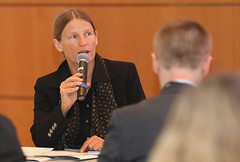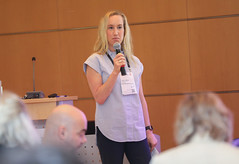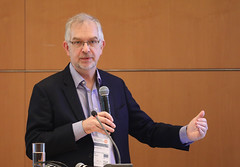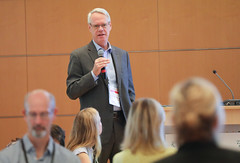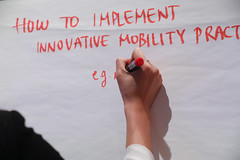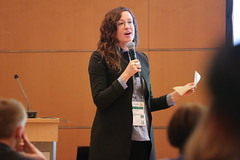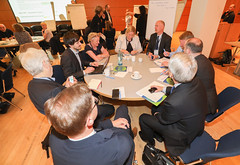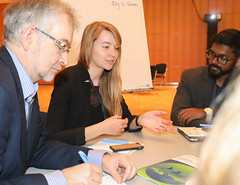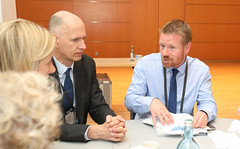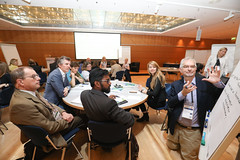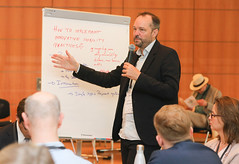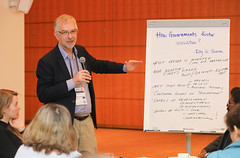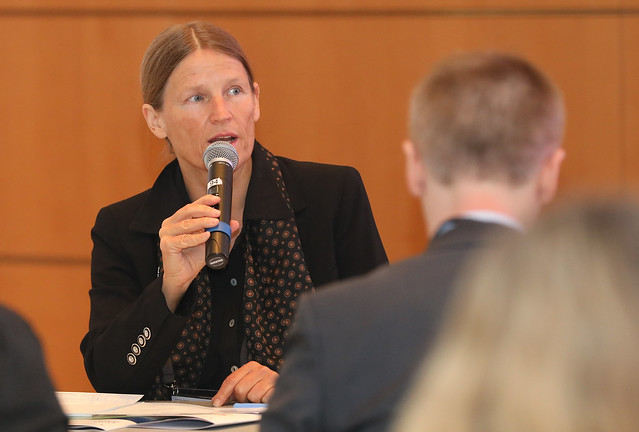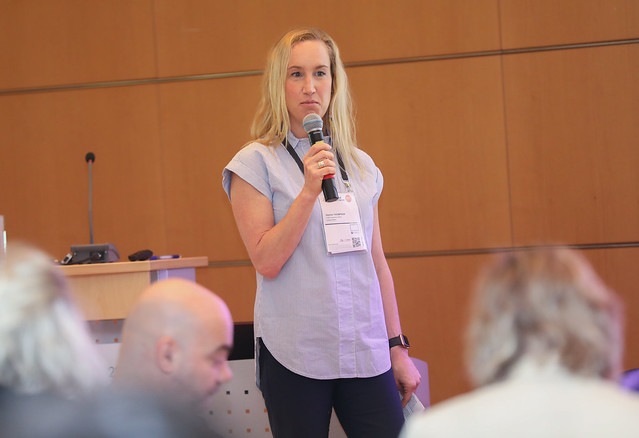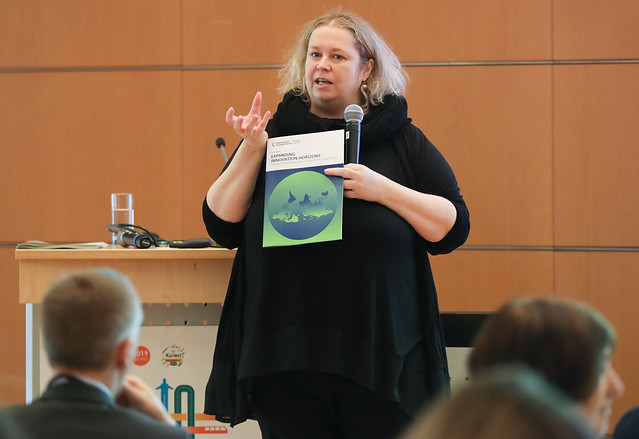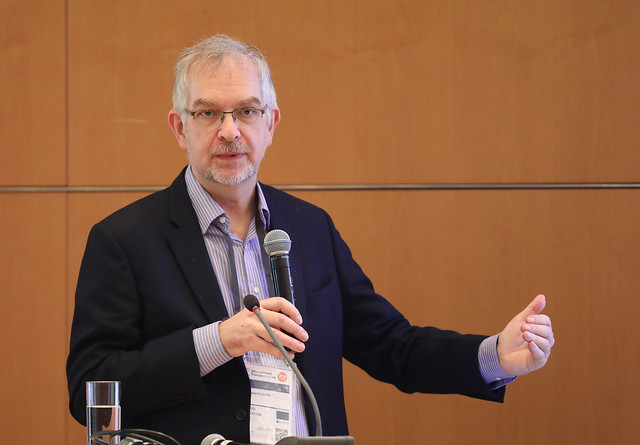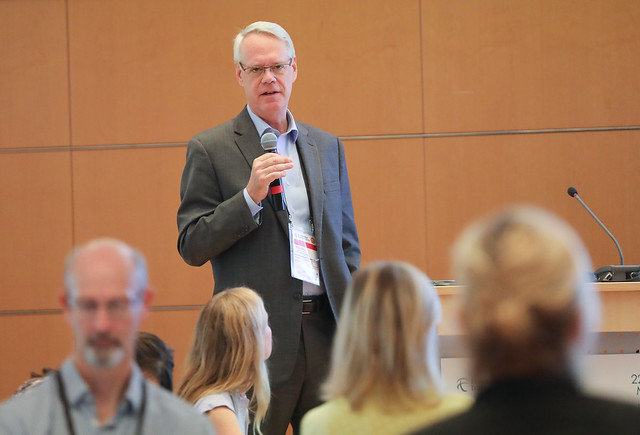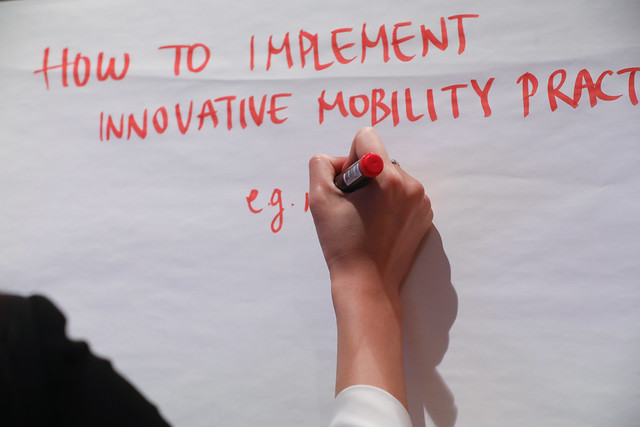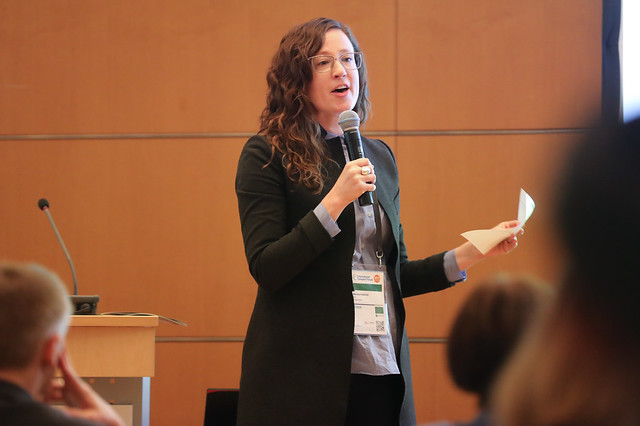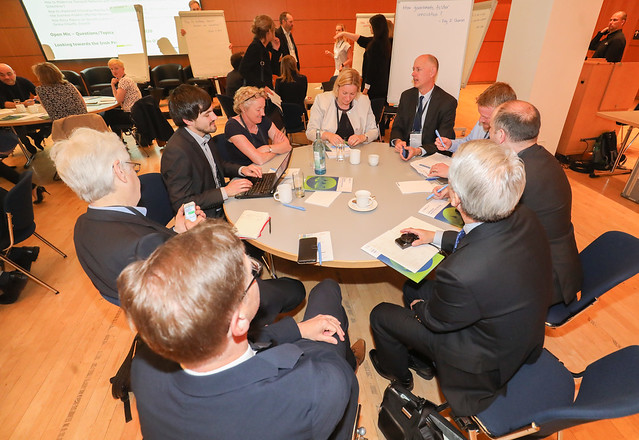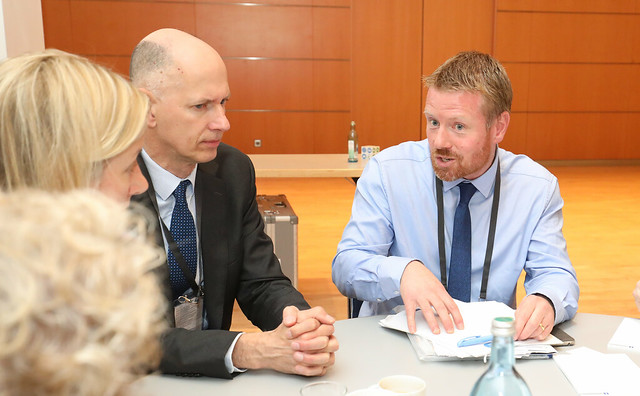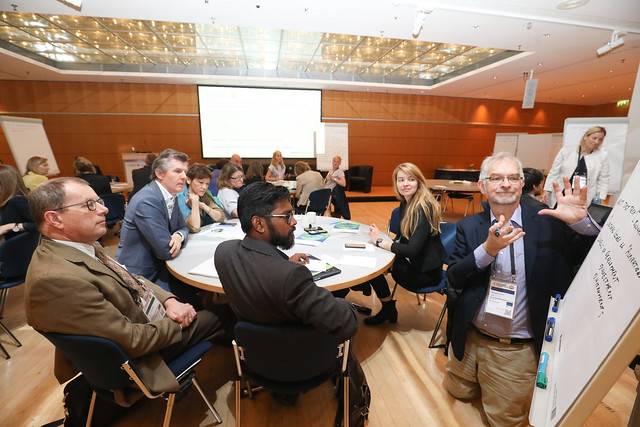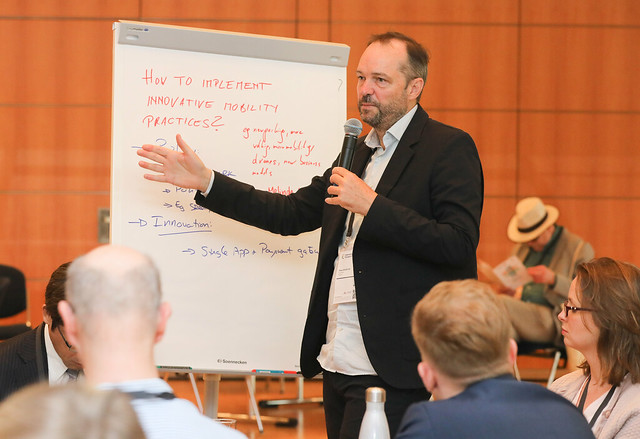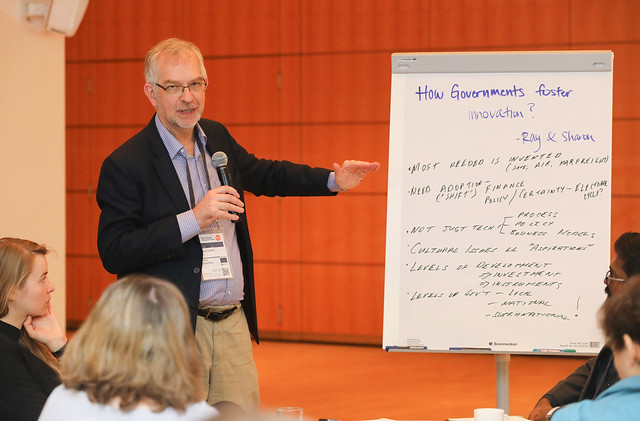The session focused on transport innovation as a tool for sustainable development. The first part consisted of presentations by experts from public and private sectors and the second took the form of a networking session composed of roundtable discussions.
Presentations highlighted the importance of learning from the global south’s embrace of innovation and technological changes, with specific case studies presented on the future of electric transport, green growth and policies on new forms of mobility. A key step is the development of a new data standard, the General Transit Feed Specification (GTFS), which has been used in cities including Nairobi to map informal bus routes and improve bus transport systems. Mexico City is also creating flexible mapping systems for micro-mobility.
A case study of Ireland was also presented, which highlighted its government’s efforts to foster innovation by attracting workers with key skills and breaking down traditional boundaries between transport modes by investing in new mobility modes and single supply chains.
Robert Guild, of the Asian Development Bank, advocated developing partnerships to leverage expertise, especially through co-operative agreements, memberships and knowledge sharing.
The user perspective was also shared by private sector stakeholders. Melinda Hanson of Bird Scooters advocated rethinking the way streets are designed to incorporate new forms of sustainable mobility, such as scooters and shared modes, in order to improve access in cities.
Roundtable discussions
The second part of the session comprised roundtable discussions, organised according to the following key questions:
• How can governments foster innovation?
The key challenge is to adopt the right solutions and to ensure financial investment and supporting policy changes. Fostering innovation is not only about creating new technology, but about the process, policy and business models that support its adoption. The discussion highlighted cultural differences that can represent a challenge for shifting to new methods, but also be a source of aspirations. Governments should assess innovative projects in terms of their accessibility to investments and instruments, as well as their scalability.
• How to modernise transport networks with innovation?
The discussion emphasised the following three aspects of modernising transport networks: user acceptance of an innovation; political support for new policies and the willingness to change methods; and technical systems on which digital infrastructure and technology interactions are based. The participants also highlighted the need for capacity optimisation in existing transport modes.
• How can policymakers become innovation partners for entrepreneurs?
This roundtable focused on collaboration between the government, private sector and citizens. Solutions from one region or one field may not be applicable in other areas. The gap between the fast-paced entrepreneurs and innovative companies, and the slower adoption of public interest safeguards by governments needs to be addressed. In this sense, innovation labs, such as Datacity in Paris - a hub for startups collaborating with the government - foster dialogue by addressing clearly defined problems. Policy makers need to explain the social benefits of regulations and openly communicate their targets in order to become efficient partners for private sector actors.
• How to implement innovative mobility practices?
Implementation of innovative mobility practices can be enhanced by a comprehensive policy framework and by regulations tackling the political challenges to support innovation and address the risks. One example is to propose attractive and efficient alternatives to single car usage, such as a common mobility app with a single payment gateway to initiate the shift towards sustainable mobility practices. One outcome for governmental entities was to launch pilot projects more often to speed up the implementation process and offer concrete mobility solutions.
Speakers
Speakers

Katja Schechtner
Advisor for Innovation and Technology at OECD/ITF
Research Fellow, MIT Senseable City Lab

Robert Guild
Chief Sector Officer, Sustainable Development and Climate Change
Asian Development Bank

